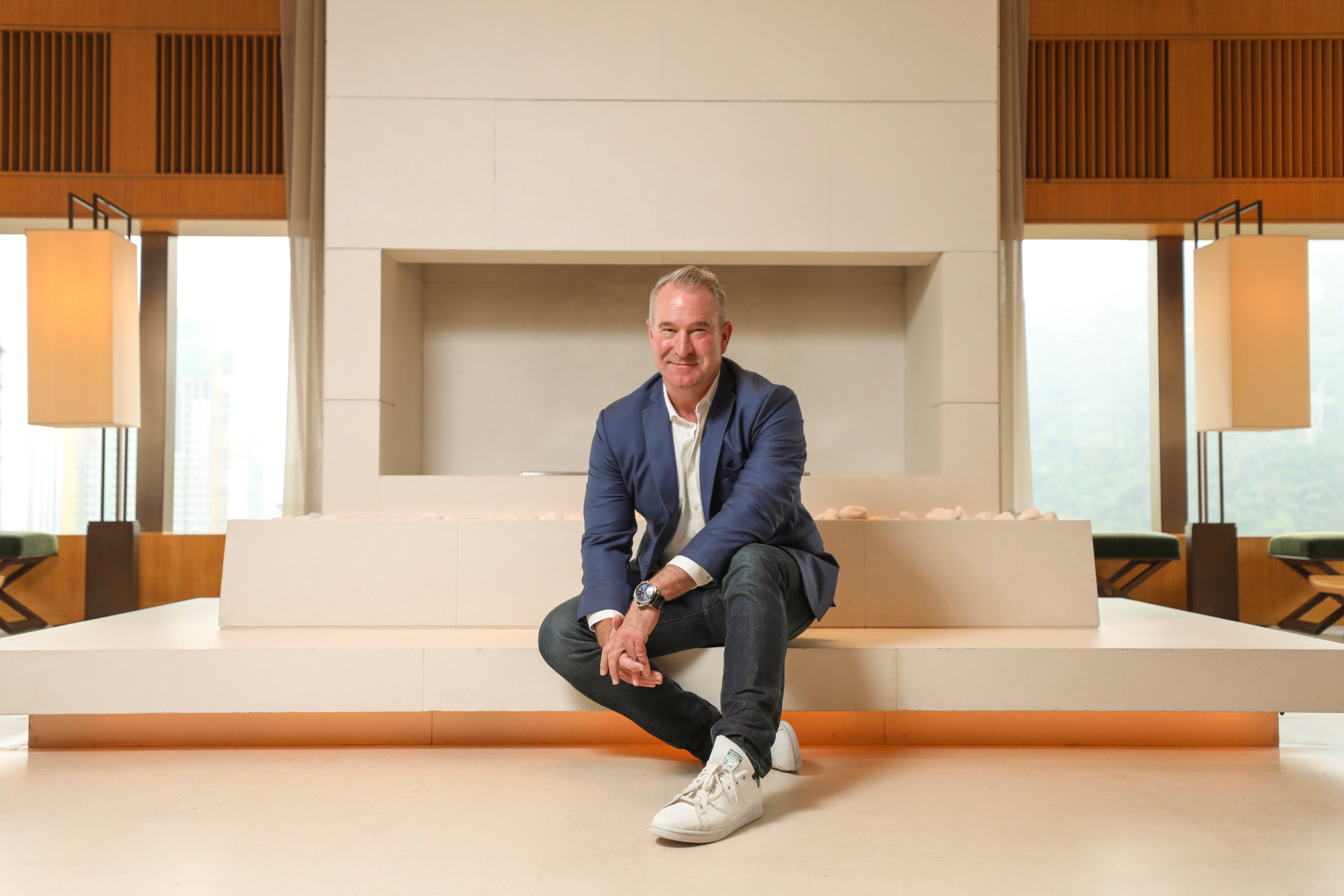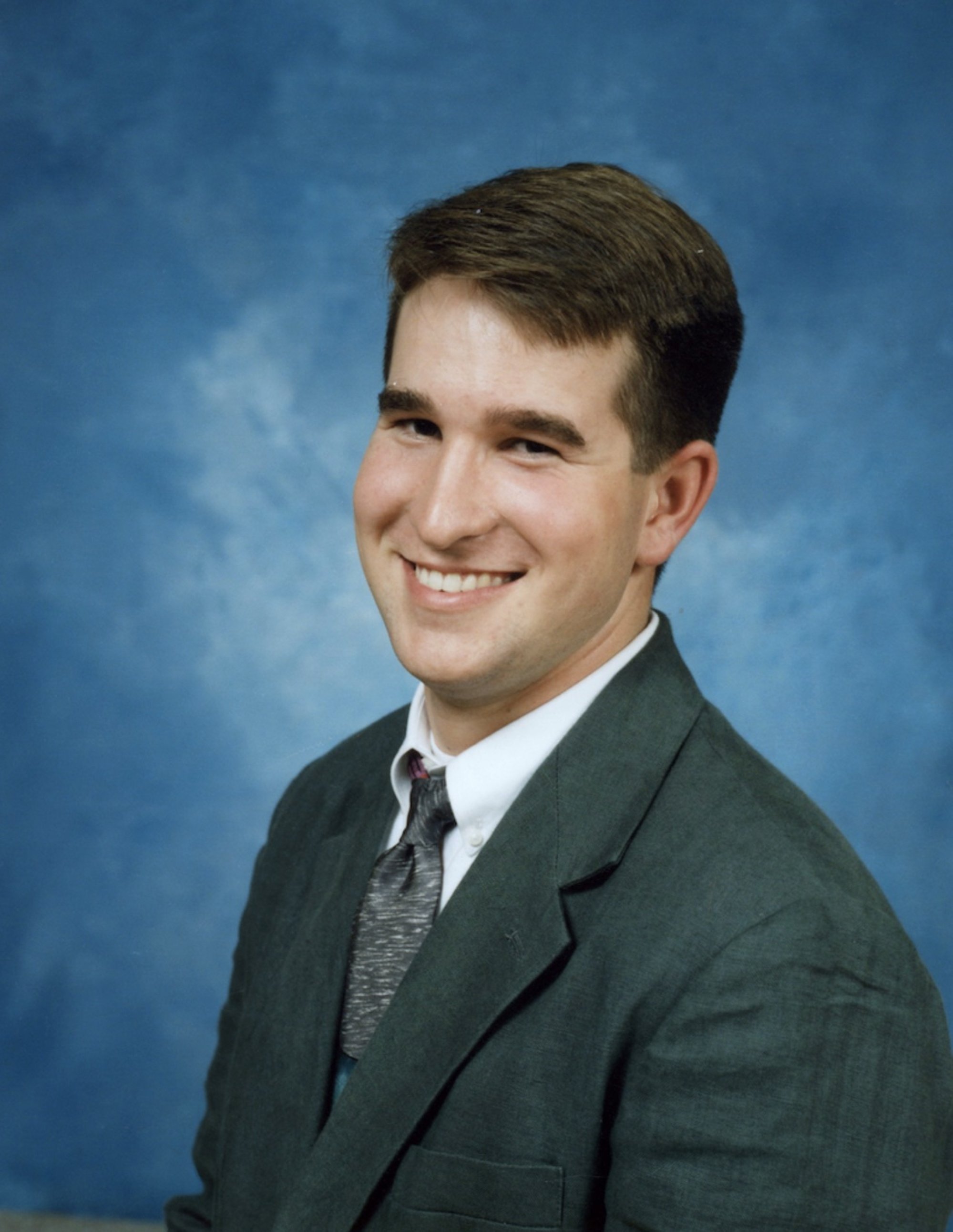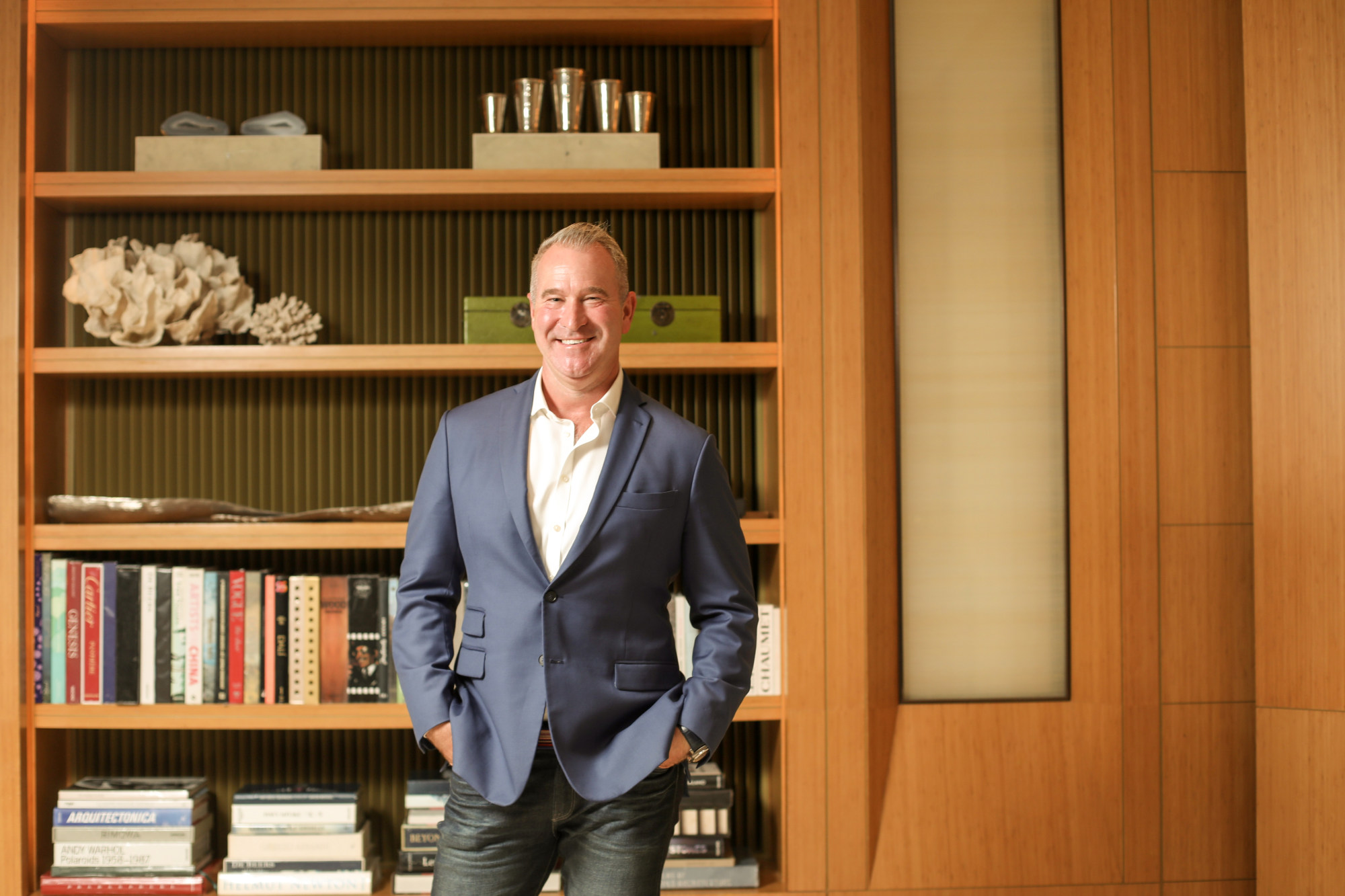
- Todd Sears, the CEO and founder of Out Leadership, the global LGBTQ business network, talks about play-acting, letter writing and working as an openly gay man
The story of my childhood is lonely: an only child, who moved around and knew he was gay. I’ve later come to realise it has enabled me to do what I do in the world and it was a gift but, as a kid, you don’t understand that.
I was born in 1976 and grew up in North Carolina, in the US. My dad was in textiles, a dying industry – it was all going to China – and the companies would either be sold or go out of business. So we moved. I went to nine schools.
My mom said, “That’s when two men love each other.” I said, “Could I be gay?” and she said, “You could, and that would be OK.”

There’s a book by Andrew Tobias called The Best Little Boy in the World (1973). It’s this concept that gay men overachieve to make up for being gay. The idea is that if we’re perfect, and you find out we’re gay, you’ll still love us.
That was me. I was an Eagle Scout, got straight As, played the piano at festivals.
There’s another book, The Velvet Rage (2005), by Alan Downs, who studied gays for 20 years, saying that gay men are born with shame. We’re born into this world; and this world tells us we’re wrong from an early age.
Truthfully, I don’t remember not feeling shame.
Recalling Leslie Cheung, 20 years on: singer, actor and LGBT+ trailblazer
Life and death
When I was 15, I went to Woodberry (Forest School). It’s very conservative, male, in the Shenandoah Valley, in Virginia, really beautiful. There were 360 boys, all the teachers lived on campus and it changed my life.
My English teacher, Mr John Reimers, became my mentor, very Dead Poets Society. On Friday nights, six of us would go to his house, his wife would cook, and someone was in charge of the intellectual discussion. And Mr Ted Blain, who also taught English, created the Algonquin Society.

Each week we’d read, and discuss, the current issue of The New Yorker and, in the spring of my senior year, it had an ad for a play on Broadway called Angels in America, by Tony Kushner. Underneath it said, “A Gay Fantasia on National Themes”. My dad arranged for someone he knew in New York to take me.
It’s in two parts, each four hours long, and I saw both on the same day. There was a character, Joe the Mormon, who was gay and did what I was going to do: get married and have a straight life. This was 1994, when no one had mentors – they’d all died of Aids.
That’s what we grew up with: the first time you have sex, you’re going to die. But I saw what my life would be, played out in Joe the Mormon’s life – miserable. So there I am, in the Walter Kerr Theatre on West 48th Street, and I thought, I’m gay and I have to live that.
I’m not queer. I’m a gay man. From an Out Leadership perspective, I’m actually trying to get us – gay, straight, bi, male, female, gender-non-conforming – into: you’re a humanTodd Sears
Heart felt
I went back to Woodberry, and the only thing I could do – this is before the internet – was write a letter to David Marshall Grant, who’d played Joe.
And he wrote back a beautiful letter, I still have it. He’s gay and he wrote, “I know you will have a great, and full, life. I have.”
My biggest supporter was Mr Reimers. He gave me lots of books, including The Family Heart, which had just been published. It’s a mother’s story (by Robb Forman Dew) of a son coming out. Her husband had gone to Woodberry. And I wrote her a letter.

She said I needed to tell my father but I was a little afraid. My dad’s not homophobic but he’d been in the army, he was a frat guy … I said to her, “You tell him,” and avoided him for a day.
He cornered me the next evening and said, “I love you, why wouldn’t you tell me?” He did say, “How do you know? Have you ever had sex with a woman?” And I said, “No. Have you ever had sex with a man?” My parents are phenomenal, I’m great fans of both of them.
How the ‘heartbreaking’ story of a transgender activist changed their life
Being human
At Duke (University, in North Carolina), I majored in English, concentrating on medieval literature and poetry, and had a wonderful time. I was Quad Council president, I started Last Day of Classes – a full campus party at the end of term – which still happens and is now called LDOC.
There was a student group at Duke called the Gothic Queers, and that word does not describe me. I’m not queer. I’m a gay man.
From an Out Leadership perspective, I’m actually trying to get us – gay, straight, bi, male, female, gender-non-conforming – into: you’re a human. I did tell people, one by one, I was gay.
The closet does really bad things to people; the longer you are in it, the more likely you are to have mental challenges.

Money talk
I left after nine months and was hired by DeSilva & Phillips investment bank. At the interview, I told them I was gay and they said, “Dude, totally fine.” It was a small firm so I had to work on all kinds of deals, including leveraging my access to the gay community.
I got married to a guy I was not in love with […] As my dad said, I got married for activism, not for loveTodd Sears
When I went to Merrill Lynch, I was their first openly gay financial adviser. I had this idea: Wall Street had never spoken to the gay market, why wouldn’t we talk to those clients? They said, “Go for it!” In my first 12 months, I brought in 100 million bucks.
The key piece, for me, is that I told them that if I’m going to do this, we’re going to have to have non-discrimination protection and you’re going to have to support me. By 2005, I’d brought in US$2 billion and they were spending almost US$3 million in the marketplace to support gay rights.
That was the year I got married to a guy I was not in love with. We were the first legal gay marriage on Fire Island (in New York) after marriage-equality passed. As my dad said, I got married for activism, not for love.

Culture shock
Credit Suisse recruited me, the hardest two and a half years of my career. The culture was … challenging. In 2010, they fired me. I found myself on my sofa with a severance cheque and multiple Hendrick’s martinis. I thought, “When was I happiest?” And it was when I was getting Merrill Lynch, this old Irish Catholic company, to support gay rights.
I got six friends from six banks together and said, “If I hold a summit, will you help?” I used my severance cheque, and a friend at Deutsche Bank said he’d get their CEO to host it, and in March 2011, Bank of America, Barclays, Citigroup, Deutsche, Goldman Sachs and Morgan Stanley came together for the first Out on the Street, now Out Leadership, summit.
The following year, I flew to London. I’ll never forget one woman who said, “You’re American, we don’t need you, go home.” But I’m always the American optimist, that’s how I do what I do.

Gay pride
Think of the message that sends from one of the world’s largest banks. There are 68 countries in the world where it’s illegal to be gay. We’re not telling people their culture or religion is wrong; we’re telling them if they’d like to be a modern society and a modern economy, LGBT should not be illegal.
Inclusion matters, from a business perspective, for everyone. When Hong Kong was applying for the Gay Games, we were supportive.

Old school tie
To this day, I still write letters to Mr Reimers from around the world. I sent him one from Buenos Aires and it scared him because the hotel posted it in an official-looking envelope and he thought I was in jail.
After this interview, I’m going to write to him from Hong Kong. I’m going to tell him I’ve decided to apply for dual citizenship in Australia, and will divide my time between Sydney and Fire Island.
That’s for two reasons. I love Australia: eight years ago, when I went there, they said, “Where’ve you been? We’re so happy to have you!”
And at Thanksgiving last year, my parents said they were afraid I might be shot in the United States. I’m single but I’m manifesting a partner and I do think he’ll be Australian. So we’ll see.
